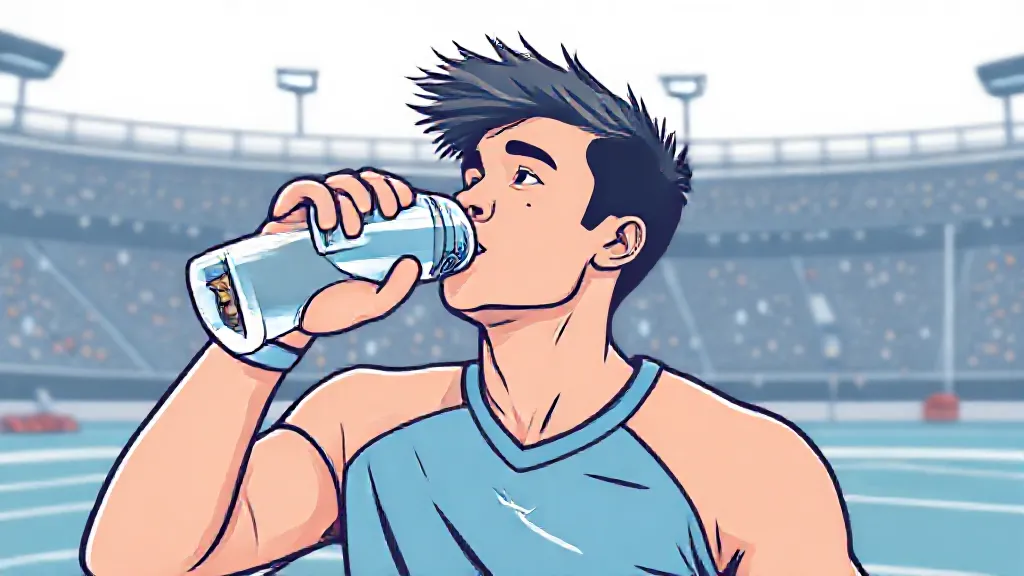Proper hydration is a fundamental aspect of athletic performance that cannot be overlooked. During games, athletes experience significant physical exertion, which leads to fluid loss through sweat and respiration. This loss can impair performance, reduce endurance, and increase the risk of heat-related illnesses.
Understanding the science behind hydration and its impact on athletic performance is essential for athletes, coaches, and sports enthusiasts alike.
The Science of Hydration and Performance
Hydration plays a critical role in maintaining homeostasis within the body. Water constitutes about 60% of body weight, and it is vital for numerous physiological processes, including temperature regulation, nutrient transport, and waste elimination.
When athletes become dehydrated, even by as little as 2% of body weight, their performance can decline significantly. Studies have shown that dehydration can lead to decreased strength, increased fatigue, and impaired cognitive function, all of which are detrimental during high-stakes games.
The Risks of Dehydration in Sports
Dehydration can lead to serious health risks, particularly in sports that require intense physical activity.
Heat exhaustion, heat cramps, and heat stroke are some of the severe consequences of inadequate hydration. Symptoms may include dizziness, confusion, rapid heartbeat, and in extreme cases, loss of consciousness. Athletes must recognize these signs and prioritize hydration before, during, and after games to mitigate these risks effectively.
Hydration Strategies for Athletes
To optimize hydration, athletes should develop a strategic approach that includes pre-game, in-game, and post-game hydration. Before a game, athletes should consume fluids that are rich in electrolytes to prepare their bodies for the upcoming exertion. During the game, it is crucial to take regular hydration breaks, even if one does not feel thirsty.
Water is essential, but sports drinks can also be beneficial as they replenish lost electrolytes and provide carbohydrates for energy.
The Role of Electrolytes in Hydration
Electrolytes, such as sodium, potassium, and magnesium, are minerals that help regulate fluid balance in the body. When athletes sweat, they lose not only water but also these vital electrolytes.
Replenishing electrolytes is essential for maintaining optimal hydration levels and preventing muscle cramps. Athletes should consider consuming electrolyte-rich foods or drinks during intensive training sessions and competitions to ensure they remain hydrated and energized.
Hydration and Cognitive Function
Hydration does not only affect physical performance; it also plays a crucial role in cognitive function.
Athletes must remain mentally sharp during games to make quick decisions and execute strategies effectively. Research has shown that dehydration can impair concentration, reaction time, and overall mental performance. Therefore, maintaining hydration is not just about physical endurance; it is also about ensuring peak cognitive function.
The Impact of Environmental Factors on Hydration Needs
Environmental conditions significantly influence hydration needs. High temperatures, humidity, and altitude can all exacerbate fluid loss. Athletes competing in hot and humid conditions must be particularly vigilant about their hydration strategies.
It is essential to adjust fluid intake based on these environmental factors to prevent dehydration and heat-related illnesses.
Educating Athletes on Hydration
Education plays a vital role in promoting proper hydration among athletes. Coaches and sports organizations should prioritize hydration education, providing resources and training on the importance of fluid intake.
Athletes should be encouraged to track their hydration levels and understand their individual needs, as hydration requirements can vary based on factors such as body size, age, and activity level.
Conclusion: The Bottom Line on Hydration
In conclusion, proper hydration is a crucial component of athletic performance. Understanding the science behind hydration, recognizing the risks of dehydration, and implementing effective hydration strategies can significantly enhance an athlete's performance and overall health.
As the saying goes, "water is life," and for athletes, it is the key to achieving their best on the field, court, or track.
